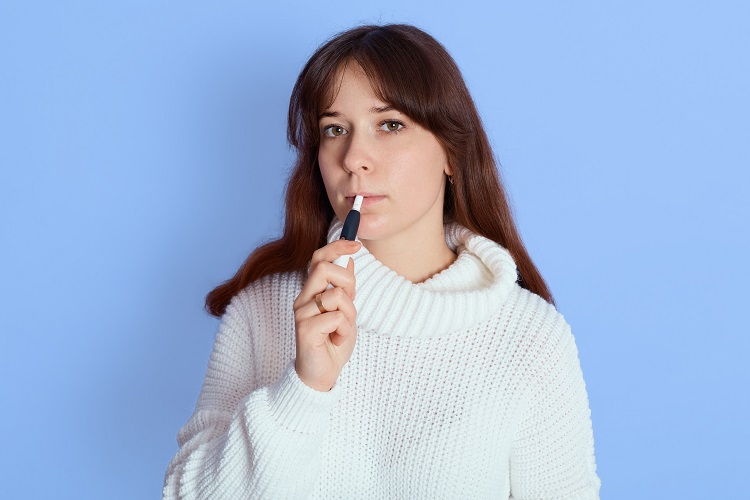When it comes to dating and relationships, confidence and openness often play a key role in how people connect. Yet, for many Kiwis, something as common as a cold sore can become a major emotional barrier. Studies show that around 30% of New Zealanders feel too embarrassed to Date Because Of Cold Sores, a statistic that highlights not just the prevalence of the virus but the deep social stigma surrounding it.
Cold sores may seem minor from a medical standpoint, but emotionally, they carry an unexpected weight. They can affect self-image, confidence, and the willingness to meet someone new. This article explores why cold sores have such a strong emotional impact, how they affect dating lives, and what can be done to change the stigma surrounding them.
What Exactly Are Cold Sores?
The Common Virus Behind the Blisters
Cold sores are small, fluid-filled blisters that usually appear around the lips, mouth, or nose. They are caused by the Herpes Simplex Virus Type 1 (HSV-1). This virus is extremely common worldwide and can be easily transmitted through close personal contact, such as kissing or sharing utensils.
Once infected, the virus remains in the body for life, often staying dormant until triggered by factors such as stress, illness, sunlight, or fatigue. While outbreaks can be uncomfortable, they usually heal within a week or two and can be managed with antiviral treatments.
Why Something So Common Feels So Shameful
Despite being widespread, cold sores still carry a stigma that far outweighs their medical seriousness. People often feel embarrassed when they have a visible sore, worrying about how others perceive them. This can lead to self-consciousness, social withdrawal, and even avoidance of romantic interactions.
For many, the fear isn’t about the physical discomfort but the emotional toll — the idea that someone might reject or judge them based on something beyond their control. That’s why a small blister can have such a big emotional impact on dating life.
The Emotional Impact of Cold Sores on Dating
When Embarrassment Turns into Isolation
Dating requires confidence and vulnerability — two things that can be hard to maintain when you feel self-conscious about your appearance. A visible cold sore can make even the most confident person feel uneasy. Some people cancel dates, avoid meeting new partners, or even stop using dating apps until the sore heals.
This pattern can easily become a cycle of avoidance. The longer someone hides away, the more isolated and anxious they become about dating in the future. What starts as a temporary embarrassment can evolve into long-term hesitation to pursue love or companionship.
The Psychological Side of Cold Sores
The emotional burden of cold sores often comes from how they make a person feel rather than how they actually look. Many Kiwis associate cold sores with being “unclean” or “unattractive,” even though this is far from the truth. HSV-1 is simply a virus — not a reflection of someone’s character, lifestyle, or hygiene.
People who struggle with self-esteem or body image issues may take a cold sore outbreak as personal failure, reinforcing feelings of insecurity. Over time, this can damage confidence in relationships and intimacy.
Why Are So Many Kiwis Too Embarrassed to Date?
Stigma and Misunderstanding
The biggest reason is stigma. Many people still associate any form of herpes with shame, judgment, or moral assumptions. Even though HSV-1 is incredibly common, there’s still a lack of understanding about how it’s transmitted or how manageable it really is.
When society treats a common viral condition as taboo, it naturally makes people feel embarrassed to discuss it — especially in romantic situations. Fear of rejection or being labeled can lead someone to avoid dating altogether.
The Fear of Disclosure
For those who experience recurrent cold sores, the question of whether to tell a new partner can cause serious anxiety. “When should I tell them?” “Will they think differently of me?” “What if they pull away?” These are real worries that many people face.
The fear of having to explain something that’s already misunderstood keeps many from opening up. Yet, in reality, most people are understanding once they learn how common HSV-1 is and how easily it can be managed.
How Cold Sores Affect Modern Dating Culture
The Pressure to Appear “Perfect”
In today’s dating world — filled with selfies, filters, and instant judgments — physical appearance is often the first thing people notice. A cold sore can feel like a major flaw in a culture that values perfection. That pressure can make people more likely to isolate themselves until they “look normal” again.
But dating should never depend on flawless skin. The obsession with looking perfect only reinforces unrealistic expectations that harm everyone. What’s important is connection, chemistry, and honesty — not temporary imperfections.
The Role of Social Media
Social media adds another layer to the issue. Seeing flawless influencers and curated images can make those with visible skin conditions feel inferior. When someone sees a cold sore on their face and compares it to an airbrushed photo online, the embarrassment grows.
It’s crucial to remember that social media rarely shows the full truth. Behind every perfect selfie is a real person with their own insecurities, health issues, and imperfections.
Breaking the Stigma Around Cold Sores
Education and Awareness
The first step to reducing embarrassment is understanding. Cold sores are not a sign of poor hygiene, promiscuity, or irresponsibility. They are a simple viral infection that almost everyone is exposed to by adulthood.
Educating the public about HSV-1 helps shift the focus from shame to understanding. When people realize how common the virus is, the emotional burden decreases. Knowledge empowers confidence, which directly improves self-esteem and dating comfort.
Changing the Conversation
Talking about cold sores openly and honestly helps normalize the experience. When people share their stories or discuss their experiences, it makes others feel less alone. The more we treat cold sores as a normal part of life, the faster the stigma will fade.
A shift in conversation — from “embarrassing infection” to “common health condition” — can make a world of difference in how people date, connect, and view themselves.
Tips for Dating When You Get Cold Sores
1. Don’t Let It Define You
A cold sore does not define your worth or attractiveness. It’s a temporary condition, not a reflection of your personality or desirability. Everyone has something they’re self-conscious about — this just happens to be yours.
Confidence is magnetic. When you own your story and accept yourself, others are far more likely to do the same.
2. Be Honest When the Time Is Right
If you’re developing a deeper connection with someone, honesty goes a long way. You don’t have to announce your cold sore status on the first date, but if intimacy becomes likely, it’s respectful to bring it up.
You might say something simple like, “I sometimes get cold sores — they’re really common, and I manage them easily.” Most people will appreciate your openness and maturity.
3. Manage Your Outbreaks
Learn to recognize triggers and symptoms early. Stress, sunlight, fatigue, and hormonal changes can all cause flare-ups. Using lip balm with SPF, eating a healthy diet, and getting enough rest can help minimize outbreaks.
If you feel a tingle or burning sensation, use antiviral medication or natural remedies right away. Acting early shortens healing time and reduces contagiousness.
4. Focus on Emotional Connection
When dating, focus on emotional intimacy rather than physical appearance. A meaningful conversation or shared laugh does more to build attraction than any cosmetic flaw could ever take away.
Cold sores are temporary — connection is what lasts.
Building Confidence After Embarrassment
Reclaiming Your Self-Image
Feeling embarrassed about a cold sore is natural, but you don’t have to live in that feeling. The best way to rebuild confidence is through self-compassion. Remember that millions of people have the same virus — you are not alone, and you are not “different.”
Engage in activities that make you feel confident and fulfilled. Exercise, socializing with understanding friends, and pursuing hobbies all help you focus on your strengths instead of your insecurities.
Dating With Confidence
Start dating again when you feel emotionally ready. Remind yourself that anyone worth your time will see past a cold sore and appreciate who you are as a person. When you approach dating with authenticity, you naturally attract people who value honesty and empathy.
If someone judges you for something as minor as a cold sore, that says more about them than about you.
The Reality: Most People Understand
Cold Sores Are Extremely Common
Statistics show that the majority of adults carry HSV-1, even if they never experience visible symptoms. This means that the person you’re worried about telling might already have the virus — or have been exposed to it.
Understanding this fact helps reduce the fear of disclosure and encourages people to view the condition as ordinary rather than shameful. Cold sores are a part of normal human biology — nothing more, nothing less.
Kindness and Empathy Go a Long Way
The more we approach topics like cold sores with kindness and empathy, the easier it becomes to talk about them. Relationships thrive on honesty, compassion, and shared understanding. When both partners communicate openly, embarrassment loses its power.
Redefining Beauty and Normalcy
Beyond the Surface
Real beauty goes beyond perfect skin. It’s found in confidence, kindness, humor, and authenticity. When you stop hiding behind fear or shame, you allow your true self to shine.
Cold sores may affect your appearance temporarily, but they don’t diminish your value or attractiveness. If anything, overcoming the stigma can make you stronger, more self-aware, and more compassionate.
Setting a New Standard
Imagine a world where people no longer feel ashamed of something so common. Where dating doesn’t depend on having flawless lips but on genuine connection. That’s the world we should be building — one conversation, one act of acceptance at a time.
Final Thoughts: From Embarrassment to Empowerment
The idea that 30% of Kiwis are too embarrassed to Date Because Of Cold Scores says more about our society than about the virus itself. It highlights how stigma and misunderstanding can turn a simple health condition into a source of deep emotional pain.
But it doesn’t have to be that way. By understanding the facts, being open with ourselves and others, and replacing shame with confidence, we can change the way people approach dating with cold sores.
You are not defined by a virus. You are defined by how you live, love, and show up for yourself. The next time a cold sore appears, remind yourself that it’s temporary — but your worth, confidence, and ability to love are permanent.
Cold sores may come and go, but self-love and acceptance will always stay.



